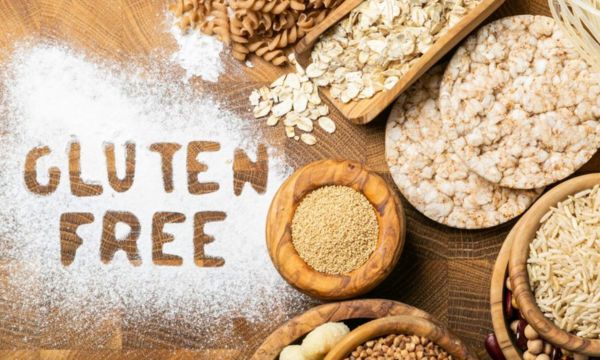Understanding Carbohydrates in Your Diet
Carbohydrates, often called “carbohydrates,” are one of the three most important nutrients people need to stay healthy. The other two are proteins and fats. They are our body’s main source of energy and give us the ability to do many different things. Carbohydrates, on the other hand, have had a mixed image in recent years, with some diets recommending reducing or eliminating them. In this detailed guide we look at the different types of carbohydrates, what they do, where they come from and how important they are to a good diet.
Ad
What Exactly are Carbohydrates?
Carbohydrates are composed of carbon, hydrogen and oxygen atoms. Sugar molecules form their structure. These sugar molecules can be individual sugars (monosaccharides) or chains of sugar molecules (polysaccharides). These chemicals provide our body with a fast and efficient way to obtain energy.
Different Types of Carbohydrates:
There are two main types of carbohydrates: simple carbohydrates and complex carbohydrates.
1. Simple Carbohydrates (Sugars)
They consist of one or two sugar molecules and are quickly absorbed by the body. Simple carbohydrates come from table sugar (sucrose), fructose (fructose) and lactose (lactose).
2. Complex Carbohydrates (Starches and Fiber)
Complex carbohydrates are long chains of sugar molecules that are more difficult to break down. You can find them in grains, legumes, vegetables and whole fruits.
Functions of Carbohydrates:
Carbohydrates are important for the body in many ways:
1. Power Source
Carbohydrates are the body’s main source of energy. When eaten, they are broken down into glucose, which the cells use as food.
2. How the Brain Works
For the brain to function properly, it needs glucose from carbohydrates. It provides the brain with the energy it needs to think, concentrate and perform other cognitive tasks.
3. Muscle Nutrition
Carbohydrates are very important for athletes and other physically busy people. When you exercise, they provide your muscles with the energy they need to contract.
4. Use Less Protein
Carbohydrates help maintain the primary function of proteins, which is to repair and grow tissue. When carbohydrates are insufficient, the body may use protein, which is a less efficient way to obtain energy.
Carbohydrates from Food:
Carbohydrates are found in plant and animal foods. Here are some common foods that contain carbohydrates:
1. Cereals
Foods rich in carbohydrates include rice, wheat, oats and barley. Starch is a complex carbohydrate found in foods such as rice, wheat, oats and barley.
2. Fruits
Most fruits contain natural sugars, especially fructose, and fiber.
3. Vegetables
Carbohydrates are found in vegetables such as potatoes, corn and peas. Green leafy vegetables, on the other hand, contain fewer carbohydrates and more fiber.
4. Cereals
Beans, lentils and peas are rich in carbohydrates and proteins.
5. Milk
Lactose is a naturally occurring lactose found in milk and dairy products.
6. Sugary Snacks and Sweets
Simple carbohydrates are found in many sugary foods and drinks, such as sweets, desserts and sugary drinks.
7. Seeds and Nuts
Although they contain some carbohydrates, they are also high in healthy fats and protein.
What does Fiber Do?
Fiber is carbohydrates that come from plants and cannot be broken down by the body. It can be soluble in water or insoluble in water.
1. Water Soluble Fiber
Soluble fiber is found in foods such as oats, beans and fruits. It dissolves in water and turns into a gel-like substance in the intestines. It can help reduce fat and keep blood sugar levels stable.
2. Insoluble Fiber
Insoluble fiber is found in whole grains, vegetables and fruit peels. It adds volume to the stool, helps keep bowel movements regular and prevents constipation.
Getting enough fiber in your diet is important for digestion and can reduce the risk of certain long-term diseases.
Glycemic Index:
The glycemic index (GI) ranks carbohydrates in foods based on how quickly they raise blood sugar levels after eating. High GI foods are broken down quickly and can cause blood sugar levels to rise. Low GI foods are broken down more slowly, causing blood sugar levels to rise more slowly.
Foods with a low glycemic index (GI), such as whole grains, legumes and most vegetables, are considered healthier because they keep you feeling full longer and help control blood sugar levels. High GI foods should be eaten in moderation, such as sweet snacks and white bread.
Eat the Right Amount of Carbohydrates in Your Diet:
Getting the right amount of carbohydrates in your food is important for your overall health. Here are some ideas on how you can do this:
1. Put Whole Foods First
Choose whole, unprocessed foods such as whole grains, fruits and vegetables instead of refined and sugary foods.
2. Measure the Portion Size
Pay attention to how much you eat, especially if you eat foods high in carbohydrates. Pay attention to the size of the dishes and don’t eat too much.
3. Mix with Healthy Fats and Proteins
Adding protein and healthy fats to carbohydrates can help keep blood sugar levels stable and make meals more complete.
4. Choose Fiber-Rich Foods
Choosing fiber-rich foods can improve digestion, stop hunger pangs and keep energy levels stable.
5. Don’t Add too much Sugar
Reduce the extra sugar you eat and drink as it can make you gain weight and cause health problems.
6. Pay Attention to Timing
When you eat carbohydrates before and after exercise, carbohydrates can aid your exercise and help your body recover.
Carbohydrates and How to Lose Weight:
When it comes to weight loss, carbohydrates always take center stage. Some diets recommend low-carb or ketogenic methods, saying they can help people lose weight. But it’s important to remember that not all carbs are the same, and the types of carbs you eat matter.
Whole, unprocessed carbohydrates, such as those found in whole grains, vegetables and fruits, can be part of a healthy diet and can even help you lose weight by providing you with important nutrients, fiber and satiety. The key is balance and getting your carbs in the right places.
Conclusion:
Carbohydrates are an important part of our diet because they provide us with energy, help our brains work and are important for our overall health. As the conversation about carbohydrates continues, people should focus on making informed decisions, choosing whole, nutrient-dense sources and controlling intake. Understanding how carbohydrates affect your body can help you make food choices that are good for your health and energy.
FAQs:
1. Are all carbohydrates bad for you?
No, not all carbohydrates are bad. It is important to distinguish between simple carbohydrates found in sugary snacks and complex carbohydrates found in whole foods such as grains, fruits and vegetables. Complete, unprocessed carbohydrates are an important part of a healthy diet.
2. What is the role of carbohydrates in weight management?
The quality of the carbohydrates is more important than the quantity. Complete carbohydrates that are rich in fiber can be part of a balanced diet and can aid in weight management by promoting feelings of satiety and providing essential nutrients.
3. How do you determine the glycemic index of food?
The glycemic index (GI) of foods can be found in various online resources and books. In general, low GI foods include whole grains, legumes and most vegetables, while high GI foods include sugary snacks and refined grains.
4. If I want to lose weight, should I avoid carbohydrates?
No, you don’t have to avoid carbohydrates to lose weight. Moderation and choosing the right carbohydrate sources are essential. Focus on whole, nutritious options and keep an eye on portion sizes.
5. What is the difference between soluble fiber and insoluble fiber?
Soluble fiber dissolves in water and forms a gel-like substance in the digestive tract, lowering cholesterol levels and stabilizing blood sugar levels. Insoluble fiber adds bulk to the stool, promotes regular bowel movements and prevents constipation. Both types of fiber are essential for digestion.
 Living Gluten-Free: A Comprehensive Guide
Living Gluten-Free: A Comprehensive Guide
Gluten-free living has gone from being the only option for a small group of people to being […]
More Understanding Daily Nutritional Needs
Understanding Daily Nutritional Needs
With all the nutritional recommendations out there, it can be difficult to figure out what to eat […]
More Going Vegan: What You Need to Know
Going Vegan: What You Need to Know
Veganism is not just a choice about what to eat; It’s also a commitment to a mindset […]
More